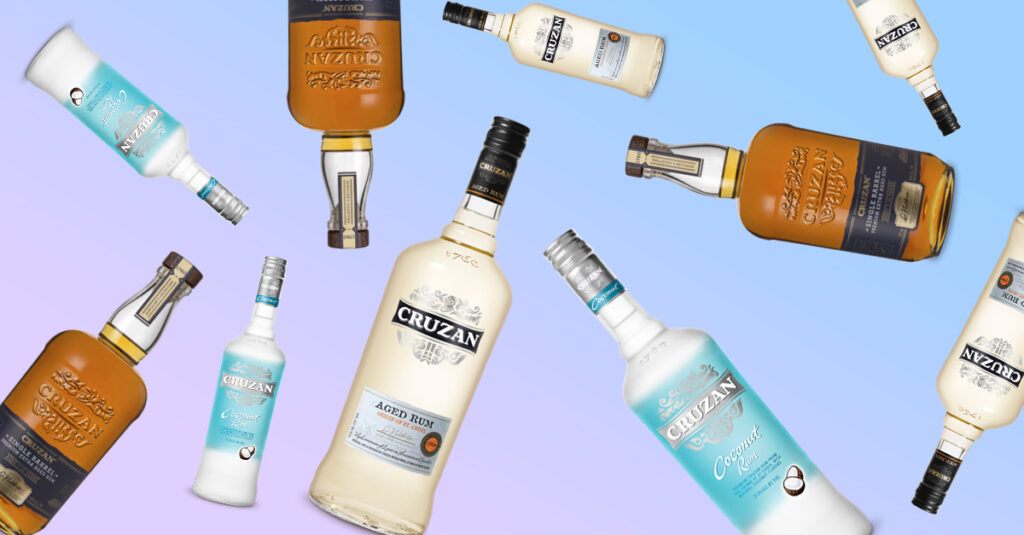What’s your tipple of choice during lockdown?
In America, it’s gin. But in the U.K., it’s rum.
While bars have had to close in response to the coronavirus pandemic, though some are mixing cocktails for takeout, sales of alcohol from retail outlets are much higher this year.
And while beer and wine sales are up from last year in the U.S., it seems that people are increasingly turning to spirits during stay-at-home measures.
Off-premise sales of spirits in the U.S. went up 34.1 percent from last year for the nine-week period ending May 2, according to Nielsen data, while wine sales went up 30.1 percent during the same time. Beer sales went up 12.6 percent.
People are turning to home-made cocktails, according to Tom Spaven, brand director at Bacardi-owned gin brand Bombay Sapphire. “We’ve seen rises in (people making) really simple, two to three ingredient cocktails, anything from the negroni (to) the classic martini … and we’ve seen a significant rise in sales of premium mixers,” he told CNBC by phone.
Gin is outstripping sales of spirits in general, with retail sales up 42.5 percent from last year for the nine-week period, according to Nielsen data.
To be sure, the World Health Organization has made clear that drinking alcohol is not a way to stop COVID-19, and frequent or excessive alcohol consumption can increase the risk of other health problems.
Bacardi launched a group-wide “raise your spirits” initiative to donate $3 million to bar and restaurant workers who had lost their jobs during the pandemic, Spaven said. He also said there has been a “huge” spike in people buying drinks for home consumption.
“We’ve taken advantage of that shift in behavior and people staying home, ordering cocktails and ordering bottles,” Spaven told CNBC.
Spaven said the popularity of gin started before lockdowns. It is “not just the top-quality bartenders, but really a lot of the mass audience in the U.S. getting into making cocktails at home and being less afraid to order something a little bit different,” he said. Gin is popular because it’s “more flavorful” than something like vodka, he added.
At Pernod Ricard, classic brands like Absolut vodka, Malibu, Irish whiskey Jameson and single malt Scotch The Glenlivet have seen sales spikes, according to Kevin Denton, its U.S. head of mixology and education. People now have time to make cocktails and are keen to try new mixes, he said, but there’s another reason they’re popular.
“There is a dimension of health consciousness that could also be driving these purchases,” Denton said. “There’s something about knowing everything that goes into your drinks that gives a person some measure of control — controlling sugar intake, artificial ingredients and so on.”
People are also ordering via sites like Drizly, an app that saw an estimated 300 percent spike in sales in March, largely driven by new buyers, after shelter-in-place orders were announced.
Creative content is something that is stimulating market growth, according to Nick Buzzell, chief executive of Spirits Network, which is like a Home Shopping Network for alcohol and operates in 50 U.S. cities. People sign up as a member to watch shows about spirits — such as documentaries about tequila or bourbon — and can have the products featured delivered to them within two hours. Buzzell said he has seen a 500 percent increase in membership since lockdowns began, with spikes in orders for Irish whiskey and tequila.
“After two months of quarantine, sipping the same spirits can become stale and boring, so we are seeing more and more exploration of different kinds of spirits, say a (Scotch) whiskey drinker trying a tequila … Through the flavor profile, our technology, coupled with our curation team, can select new spirits to try,” Buzzell said.
Diageo, meanwhile, has run a number of initiatives, such as a virtual good host guide, helping people choose themes for online drinks or curate playlists. Its Johnnie Walker Scotch brand ran a “kitchen sink drinks” social media campaign, where people could post about the random cocktail ingredients they had at home and bartenders would suggest cocktails they could create. “People are exploring new hobbies and activities — whether that’s crafts, baking, or taking time to recreate their favorite cocktail recipes at home or host a virtual cocktail hour with friends,” a Diageo spokesperson told CNBC by email. It has also pledged more than $3 million to people in the hospitality industry via several initiatives.
Meanwhile, in London, rum enjoyed the biggest growth across all spirits categories during the lockdown, according to the Wine and Spirit Trade Association (WSTA).
Some 38 percent more rum was sold in Great Britain in the three months from April to June than during the same period in 2019, working out to an extra 1.3 million bottles earning an additional $154 million, the WSTA said.



